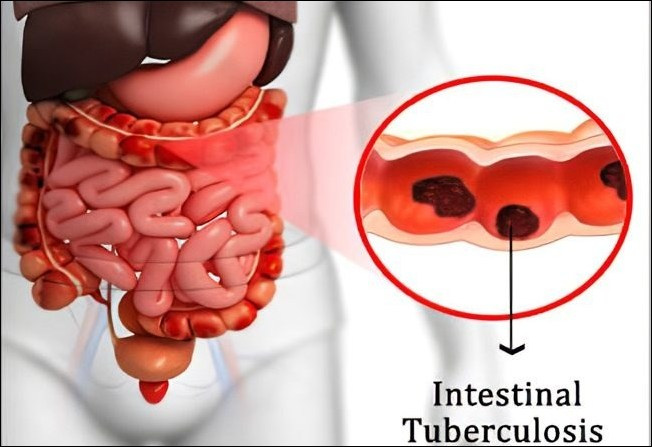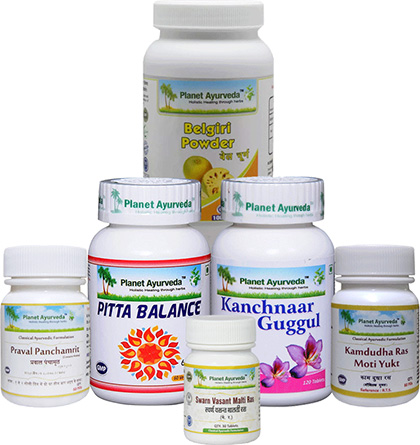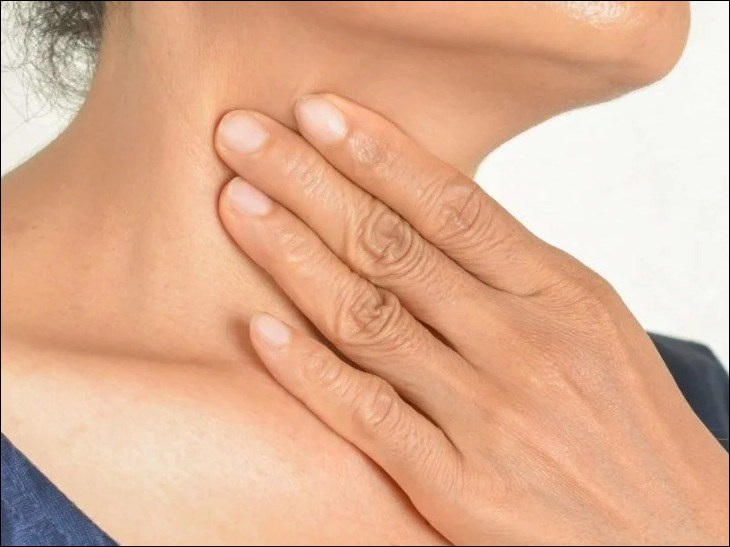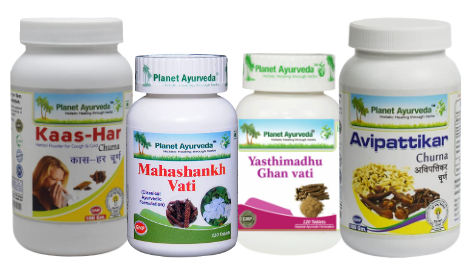Intestinal Tuberculosis And Its Treatment With Ayurveda
Abstract
Tuberculosis is a life-threatening bacterial condition that can affect various body organs. Tuberculosis of the gastrointestinal tract is called Intestinal tuberculosis. There are several ways by which tuberculosis can affect your intestines and can infect your intestinal mucous layer. The occurrence rate of Intestinal tuberculosis is 3% worldwide. We will be discussing more Intestinal tuberculosis in this article which will include its causes, more common and severe symptoms, and treatment of the disease with Ayurvedic medications.

Introduction
Intestinal tuberculosis is a chronic wasting disease of your intestines when the bacteria travels all the way from different pathways into your intestines in a previously infected individual with tuberculosis bacteria. Though it can spread through blood, lymphatic channels, or direct through the peritoneum. The ileocecal region of the intestine is the most commonly affected site in Intestinal tuberculosis. Intestinal tuberculosis can lead to obstructive jaundice or outlet obstruction as its complications. Tuberculosis can be ulcerative, inflammatory, or fibrous and stricture in formation.
Ayurvedic Aspect
In Ayurveda simply Tuberculosis is correlated to “Rajyakshma” which is considered a very fatal disease due to the direct involvement of Ojas (immune system). The same disease in the intestines will have the same causes and effects along with other related symptoms. The treatment for rajyakshma is explained in detail as it is an immune comprehensive disease and a little mistake in the treatment may cause fatal outcomes. Thus treatment should be taken from an expert Ayurvedic doctor. Dietary and lifestyle changes are mandatory for the avoidance of future complications.
Causes
Tuberculosis occurs due to the involvement of its causative agent
- Mycobacterium tuberculosis.
That can enter the body through
- Direct intake of infected sputum
- Intake of infected milk and milk products
- The bacteria once entered into the body of the person can spread into the intestines through-Hematogenous route
- Lymphatic spread (infected lymph nodes)
Symptoms
Common symptoms that appear in the person infected with Intestinal tuberculosis are
- Abdominal pain
- Thickening of intestines
- Abdominal mass
- Unexplained weight loss
- Fever
- Anorexia
- Change in bowel habits
- Rectal bleeding in severe cases
- Nausea with or without vomiting
- Melena
- Hepatomegaly
- Splenomegaly
- Anemia
- Lymphadenopathy
- Abdominal ascites
Diagnosis
Intestinal tuberculosis is diagnosed through various physical and laboratory tests
- The intestines feel thickened
- Intestines can be palpated from outside
- Histopathological findings of bacteria
- Mycobacterium-specific testing
- Blood culture
- Barium study
- Ultrasound
- CT scan
- Coloscopy
- GI mucosal biopsy
Treatment
The treatment focuses on the elimination of tuberculosis-causing bacteria and then treating the intestines.
- Antituberculosis therapy (ATT is also used as a diagnostic method in some cases)
- Certain medications- The main four drug formulation used for the treatment of tuberculosis is indicated- Isoniazid, rifampicin, pyrazinamide, and ethambutol,
- Endoscopic balloon dilatation
- Surgical methods
Herbal Remedies for Intestinal Tuberculosis by Planet Ayurveda
Planet Ayurveda provides an effective treatment for Intestinal Tuberculosis with their herbal preparations made from the standardized extracts of medicinal herbs that are pure and potent in nature. Our company is internationally certified and medicines are used worldwide to cure diseases. The medicines are so pure and potent enough to eliminate the disease from its roots.
Product List
1. Praval Panchamrit Ras
2. Kamdudha Ras Moti Yukt
3. Kanchnaar Guggul
4. Pitta Balance
5. Suvarna Basant Malti Ras
6. Belgiri Churna
Product Description
1. Praval Panchamrit Ras
These tablets are prepared with ingredients such as Mukta Bhasma (Calx of Pearl), Shankh Bhasma (Conch shell calx), Praval Bhasma (Calx of Coral), etc. They balance Vata and Kapha dosha in the body and maintain healthy digestion, liver functions, and bowel movements. This single tablet formulation with multiple benefits will surely reduce the adverse symptoms of tuberculosis on your intestines.
Dosage Take two tablets twice daily.
2. Kamdudha Ras Moti Yukt
These tablets are prepared with a mixture of certain Bhasmas including Shankh Bhasma (Conch shell calx), Praval Bhasma (Calx of Coral), Varatika Bhasma (Cowries), Shudh Gairik, Mukta Shukti Bhasma (Calx of Pearl Oysters), Giloy Satva (Tinospora cordifolia), etc. These tablets support a healthy digestive system by maintaining the proper levels of Pitta dosha in the body.
Dosage Take 1 tablet twice daily.
3. Kanchnaar Guggul
Kanchnaar guggul contains pure extracts of Kanchnar Bark (Bauhinia variegata), Pippali (Piper longum), Varuna (Crataeva religiosa), Triphala (Three fruits), etc. These tablets are indicated in intestinal tuberculosis due to their property of healing swollen and infected lymph nodes which will reduce the infection and chances of more transportation of bacteria into the intestines. Thus, it will recover the health of the patient.
Dosage Take two tablets twice daily
4. Pitta Balance
Many herbs in Ayurveda keep Pitta dosha in a balanced state. These Pitta balance capsules are prepared by mixing such herbs for best results include Coral calcium (Praval pishti), Agate calcium (Akik pishti), Kamdudha Ras (Ayurvedic calcium compound), Giloy Satva (Stem extract of Tinospora cordifolia), etc. These capsules are pure vegetarian and have a cooling effect that will reduce acidity, digestion-related issues, anger, frustration, and other intestinal problems due to intestinal tuberculosis.
Dosage Take 1 capsule twice daily.
5. Suvarna Basant Malti Ras
These wonderful tablets are prepared from a mixture of various herbs and pearls of different forms including Shuddha hingula (purified mercury and sulfur), Shudh parade (Purified mercury), kharpaka (Rasaka), Trikatu (Sonth, Marich, Pippali), Kantakari (Solanum xanthocarpum), Kutki (Picrorhiza kurroa), etc. These tablets have marvelous benefits for respiratory and digestive disorders. Thus, it can help treat intestinal issues.
Dosage Take 1 tablet two times a day.
6. Belgiri Churna
This tremendous churna formulation is made up of extracts of the herb Bel (Aegle marmelos). Belgiri is powdered to formulate the churna that has multiple benefits. Patients with intestinal tuberculosis are recommended to take the necessary quantity of this churn that is indicated by an Ayurvedic doctor on assessing their condition and symptoms, to assess the marvelous benefits of this herbal formulation.
Dosage Take one teaspoon of Nilgiri churna two times daily.
CONTACT PLANET AYURVEDA TO PROVIDE YOU WITH THE COSTING / ORDERING AND DELIVERY INFORMATION AT – COSTING.PLANETAYURVEDA@GMAIL.COM OR CALL AT +91-172-5214040
Conclusion
It is always a good decision to choose Ayurvedic medicines to treat yourself naturally and without side effects. The causative dosha is evaluated and Proper balancing of Vatadi doshas is done with natural methods to cure the disease. Untreated Intestinal tuberculosis can cause serious complications that can be life-threatening. A proper diet according to your symptoms and condition is recommended by our doctors, and avoidance of unnecessary things is recommended. For more queries or to book your appointment visit us at www.planetayurveda.com




